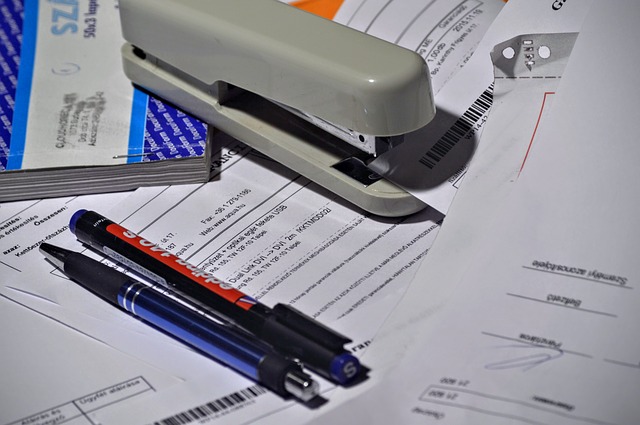How cost-efficient is your financial accounting? Does your accounting create strategic added value and increase productivity across divisions? If not, it’s time to question your internal processes and optimize things. Our tips for efficient accounting will help you to do so.
In any case, you should not underestimate the strategic importance of your accounting.
After all, invoice processing as well as the approval of salaries and project budgets are based on it.
Not only will you save time and money with a powerful and error-free accounting system, but you will also sustainably increase efficiency and productivity throughout your company.
Our tips in this blog article will show you how to make your accounting efficient and performant.
1. how to ensure more transparency and security at the same time
Transparency is realized when all relevant information in accounting is available to the responsible clerk without effort.
This is hardly possible with paper-based invoice processing. This is because it takes time and nerves for you to find all the necessary information and documents and check them without errors.
With digital tools, the clerk can respond quickly to possible inquiries as well as process complaints without errors. Even in the event of a possible delay in payment by a customer, the person in charge has direct access to all key data such as goods delivery bills or logs. This is the only way to ensure consistent cash flow control.
But how do you create transparent financial accounting? A modern ERP system provides you with the basics for tracing document chains securely, quickly and transparently or for generating meaningful reports.
Apart from that, our tip for transparent accounting is to put workflow-based DMS software into operation.
With the support of a DMS software that is integrated into your ERP software, the business documents generated from your ERP system are stored centrally and automatically with the corresponding index values.
It is important that this archiving is GoBD-compliant and that you have set up clearly defined access rights.
Access rights and authorization system secure your data and processes
Can you guarantee that only authorized employees have access to confidential accounting information and financial data?
An up-to-date DMS system ensures that unauthorized access to documents is prevented. On top of that, the software also logs who did what with an info or document and when.
Accordingly, you protect your data and your employees from data misuse and suspected fraud.
A clearly regulated access to information is also of enormous importance for another reason; the GoBD. Here, every company is obliged to comply with the regulations of the GoBD.
Last but not least, the stored digital approval processes help you to make the entire invoice processing secure and transparent.
For example, as soon as an invoice arrives, it may only be checked and approved by the authorized person. This ensures that invoices are paid as quickly as possible, thus securing discounts or rebates.
In addition, there is also immediate escalation in the event of delayed processing and deputy rules that automatically take effect in the event of an absence.

Just visit hugge consult accounting.
2. how to save costs and analyze your budgeting efficiently
Paper costs time, takes up a lot of space, is expensive and harmful to the environment. Accordingly, paper-based financial accounting is also anything but efficient.
Again, here’s what you can take away as a tip for your accounting: Digitize your document management now.
This will make your employees work faster and more productively. You’ll gain space, time and always keep track of financial data and document chains.
And, in times of home offices, your colleagues can continue to work flexibly and productively from home thanks to digital document systems.
Finally, digitization opens up completely new scope for design – both in the office, in the home office and with your budget.
Budgeting rethought
You can certainly tell a thing or two about it: New project-related budgets need to be defined or detailed cost analyses are due.
Often, the information you can get from your financial accounting software is not enough.
Sometimes you need quick and easy access to original documents. If these are then stored in paper form in some archive, this becomes a time-consuming task to say the least.
A central DMS system saves you precisely this effort. Our tip for the accounting department: With just a few clicks, you can find all the required info by time or task and can trace all document chains.
3. how your accounting department acts legally compliant
Imagine the following scenario: A company has an audit and the auditor wants to review all invoices from last year. The accounting department works manually and paper-based.
Even if the accountant seems prepared, even asking this question and researching and reviewing the documents can cause stress under these circumstances. Thus, an audit quickly becomes an ordeal.
It is completely different when the company uses intelligent DMS software. After all, tediously searching through various departments and filing cabinets is a thing of the past.
With a simple query, the accountant gets all the information he needs in a fraction of a second, which he can provide to the auditor at the drop of a hat. This way, the company works digitally, efficiently and professionally.
Adhere to retention periods
In Germany, GoBD requires you to retain digital business documents for six to ten years.
After this retention period, it is more than unnecessary to keep these documents. After all, this costs storage space and also increases the liability risk in possible audit processes.
How do you deal with this? Our tip for accounting: rely on automated deletion procedures and defined retention rules.
Here, too, your workload is reduced if you rely on digitization. With functions such as those offered by a DMS system, you can comply with rules and laws automatically.